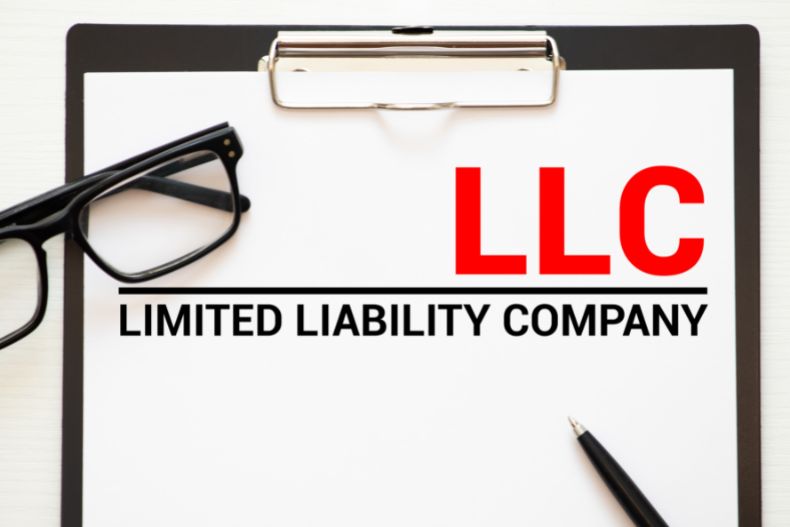You need to open an LLC if you want to start a business and be protected from personal liability. You can also open an LLC if you’re already in business and want to protect your assets from the liabilities of your business. The cost of an LLC varies depending on various factors. It could be where you live and how much help you need from an attorney.
LLC stands for “limited liability company.” It’s a type of corporate structure that shields owners from being held personally liable for the obligations and debts of their companies.
If your business fails, its creditors can’t come after your assets — such as your home or car — to pay off any outstanding debts.
You don’t need special skills or experience to start an LLC, but it requires some paperwork and fees.
Here’s what you need when opening an LLC:

A Business Name
Although it is the most obvious, it is still very significant. Your business name must be unique, so make sure there are no other companies with the same name as yours. In addition, you should make sure that no trademarks or copyrights exist on your name before going forward.
Search online through the United States Patent and Trademark Office (USPTO) database or a service such as LegalZoom or MyCorporation (free consultations). If there are no conflicts with your chosen name, you can register it with the state government where you will be doing business.
A Business License
It’s another essential requirement for opening an LLC in any state. Depending on where you live, this license may be called something different, but the general idea is the same across all states.
You’ll submit an application for your business license, pay a fee and receive a permit indicating that you can operate a business within your city limits. This license is required before opening any bank accounts or accepting credit card payments for your business because it proves that you operate legally as an LLC (or whatever type of entity) in your city or county.
A Registered Agent
A registered agent is an individual or business that acts as the legal representative for your company by receiving official notices and documents on behalf of your LLC. Use a registered agent who lives in your State. Ask your lawyer if they have any recommendations, or ask around among other business owners to find someone reliable and professional.
An Employer Identification Number (EIN)
It’s a nine-digit number that identifies businesses for tax purposes. It replaces Social Security numbers (SSNs) as identifiers for federal taxes and reporting purposes — but not for state taxes or other purposes. If you plan to hire employees, you will need one for yourself and your company because state agencies may require it when registering with them, like when filing paperwork with the State’s office Secretary.
Federal Tax ID Number (FEIN)
You’ll need to apply for a FEIN from the IRS (Internal Revenue Service)before you can open an account with many banks and other financial institutions. A FEIN is required if you plan on hiring employees or paying yourself a salary from your business. It’s also necessary if you plan on applying for any government grant or loan program.
Operating Agreement
An operating agreement is a document that governs the internal affairs of an LLC. It is similar to bylaws in corporations but is not required by law. The primary purpose of an operating agreement is to ensure that the LLC will be managed properly after its formation. Operating agreements include provisions on how decisions are made, the distribution of profits, and other essential issues that may arise during the life of your LLC.
Why Establish an LLC?
So, you will ask, why establish an LLC? There are two main reasons why you should consider establishing an LLC:
Tax Savings
Establishing an LLC is a great way to lower your tax obligation. The IRS typically treats a single-member LLC as a sole proprietorship for income tax purposes. Schedule C of your individual income tax return contains information about your business’s earnings and expenses (Form 1040). It can save you money because self-employment taxes and other costs can be deducted from this income.
Limited Liability
Limited liability protection is another significant benefit of forming an LLC. It’s important because it protects your assets from lawsuits or other claims against the company. In essence, it allows you to limit your liability exposure if something goes wrong with the business or if someone sues you personally for something that occurred at work or related to your business activities.
Get Started
The first step to starting a business is to get your LLC formation documents in order. Once you have the right papers, you can open an LLC bank account and move forward with your small business.
Although we’ve covered all the basics here, it’s important to note that other factors can affect the process. For example, if you’re planning to use your LLC as a corporation or partnership, you’ll need additional paperwork from your state government offices.
All in all, though, it’s pretty straightforward. If you want to learn more about opening an LLC, check out my guide for beginners on how to set up one.